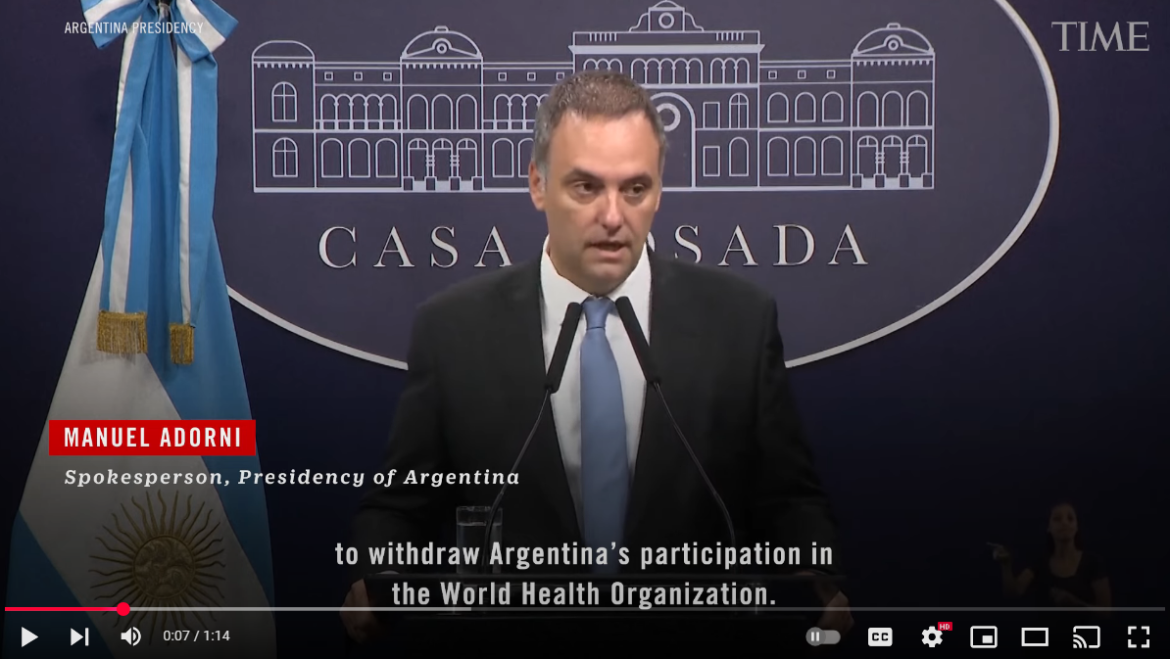Argentina declares its intention to withdraw from the World Health Organization (WHO), mirroring a recent decision by the United States. President Javier Milei’s administration cites “profound differences” with the WHO’s health management approaches as the primary reason for this move.
Presidential spokesperson Manuel Adorni emphasizes that Argentina will not permit any international organization to “intervene in our sovereignty, much less in our health.” He highlights disagreements over the WHO’s handling of the COVID-19 pandemic, particularly the extensive lockdowns implemented during the previous leftist government’s tenure, which Milei argues led to significant economic challenges.
This decision closely follows U.S. President Donald Trump’s executive order, signed on January 20, 2025, directing the United States’ withdrawal from the WHO. Trump criticizes the organization for its management of the COVID-19 crisis and other global health issues, as well as for imposing what he describes as “unjustly onerous” financial obligations on the U.S.
Argentina’s withdrawal raises concerns about its future participation in global health initiatives, including vaccine distribution and pandemic preparedness programs. Critics warn that this move could limit Argentina’s access to essential health resources and information, potentially impacting public health outcomes.
The international community is closely monitoring these developments, given the WHO’s central role in coordinating global health efforts. The organization’s capacity to manage health crises relies heavily on member nation support and collaboration.



